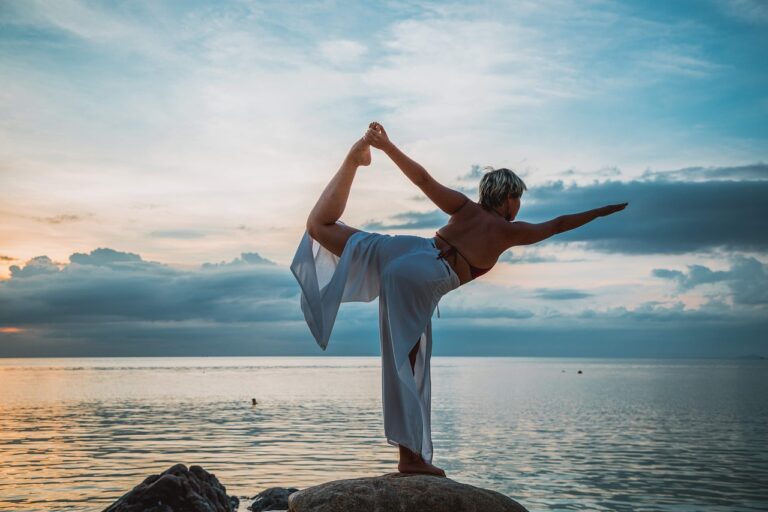The Power of Rituals: Creating Meaningful Practices for Daily Life
Rituals have been an integral part of human life for centuries, serving as a means of connecting with our inner selves, others, and the world around us. From religious ceremonies to personal routines, rituals are powerful tools that can bring structure, meaning, and intention to our daily lives. In this article, we will explore the significance of rituals, why they are important, and how you can create meaningful practices to enhance your overall well-being.
What Are Rituals?
Rituals are a series of actions or behaviors performed in a specific, prescribed manner, often with symbolic meaning. They can be religious, cultural, or personal in nature, and are typically repeated on a regular basis. Rituals can range from elaborate ceremonies to simple daily practices, such as morning meditation or bedtime routines. No matter their form, rituals serve as a way to mark important moments, create a sense of order and predictability, and foster connections with others.
Why Are Rituals Important?
Rituals play a crucial role in our lives for several reasons:
1. Providing Structure and Stability
Rituals help us establish a sense of order and routine in our lives, providing a framework that guides our daily activities and decision-making. By following familiar rituals, we can create a sense of stability and predictability, which can be comforting in times of uncertainty or chaos.
2. Cultivating Mindfulness and Presence
Engaging in rituals allows us to be fully present in the moment, as we focus our attention on the actions we are performing and the meanings behind them. This mindfulness can help us cultivate a greater sense of awareness, gratitude, and inner peace.
3. Strengthening Relationships
Rituals provide opportunities for us to connect with others, whether it be through shared traditions, ceremonies, or everyday practices. By engaging in rituals together, we can deepen our bonds with family, friends, and communities, fostering a sense of belonging and connection.
4. Enhancing Well-Being
Research has shown that engaging in meaningful rituals can have a positive impact on our mental, emotional, and physical well-being. Rituals can reduce stress, increase feelings of happiness and fulfillment, and improve overall quality of life.
How to Create Meaningful Rituals
Creating meaningful rituals is a personal and individual process, as what is meaningful to one person may not hold the same significance for another. Here are some tips to help you design rituals that resonate with you:
1. Reflect on Your Values and Goals
Consider what values and goals are important to you, and how you can express them through ritual. Think about what activities, symbols, or practices align with your core beliefs and priorities.
2. Start Small
Begin by incorporating simple rituals into your daily routine, such as a morning gratitude practice or an evening reflection ritual. Starting small can help you build consistency and gradually expand your ritual repertoire.
3. Be Consistent
Consistency is key when it comes to rituals, as repeated actions over time can deepen their meaning and impact. Make a commitment to engage in your rituals regularly, whether it be daily, weekly, or monthly.
4. Make it Personal
Personalize your rituals to make them truly your own. Consider incorporating elements that are meaningful to you, such as favorite music, scents, colors, or objects. Infusing your rituals with personal touches can make them more authentic and meaningful.
5. Embrace Flexibility
While consistency is important, it’s also essential to remain flexible and adaptable with your rituals. Life can be unpredictable, and it’s okay to modify or adjust your rituals as needed to accommodate changes in circumstances or priorities.
6. Seek Inspiration
Draw inspiration from various sources, such as books, websites, podcasts, or conversations with others. Explore different cultural traditions, spiritual practices, and mindfulness techniques to spark ideas for your own rituals.
FAQs
Q: Can anyone create rituals?
A: Yes, anyone can create rituals, regardless of their background, beliefs, or experiences. Rituals are highly personal and can be tailored to suit individual preferences and needs.
Q: How can rituals benefit mental health?
A: Rituals can benefit mental health by providing structure, promoting mindfulness, reducing stress, and fostering feelings of connection and well-being. Engaging in rituals may help improve mood, increase self-awareness, and enhance overall emotional resilience.
Q: Can rituals be adapted for different life stages?
A: Yes, rituals can be adapted for different life stages, such as childhood, adolescence, adulthood, and old age. Rituals can evolve and change over time to reflect new priorities, experiences, and growth in individuals’ lives.
Q: How can I incorporate rituals into my daily life?
A: You can incorporate rituals into your daily life by setting aside dedicated time for them, creating a sacred space for practice, and engaging in activities that hold personal significance. Start by introducing small rituals gradually and building upon them as you see fit.
Overall, rituals have the power to enrich our lives, deepen our connections with others, and cultivate meaning and purpose in our daily experiences. By creating intentional and meaningful practices, we can enhance our overall well-being and create a sense of harmony and balance in our lives.







